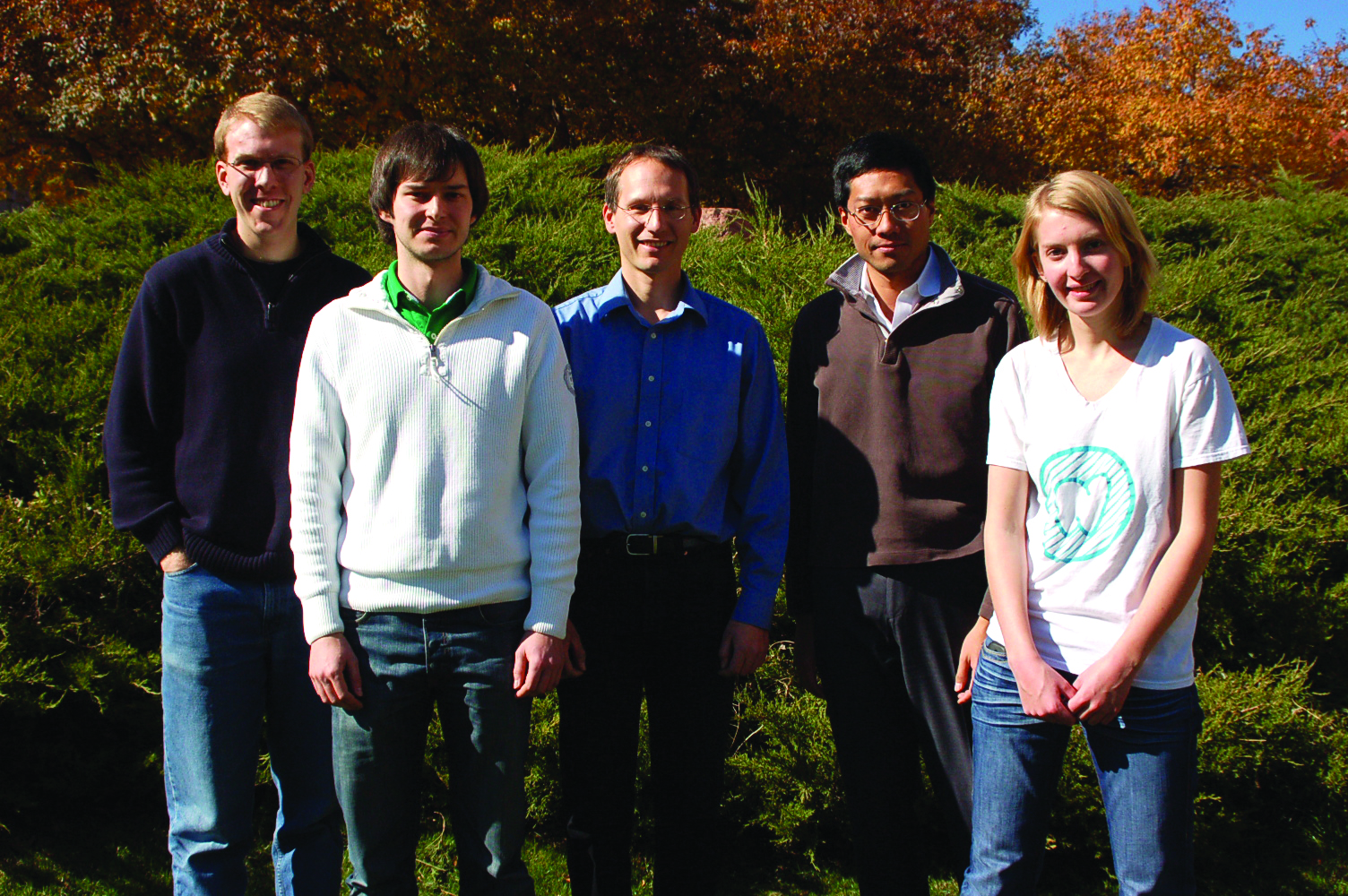About This Project
Our group is trying to develop new computer algorithms capable of simulating strongly interacting quantum fluids.
These quantum fluids have been observed in different experiments, yet are poorly understood.
While we are performing basic research, understanding strongly interacting quantum materials could lead to a host of new materials with applications to society as a whole.
Ask the Scientists
Join The DiscussionWhat is the context of this research?
Strongly Interacting Quantum Fluids are fluids which can flow around obstacles almost without friction. First observations of an example for these fluids a decade ago turbocharged the development and understanding of quantum fluid behavior and more broadly strongly coupled quantum materials. A whole new class of materials with possibly interesting properties and applications could be waiting to be discovered!
Realistic modelling of strongly interacting quantum fluids is crucial to interpreting experimental signals so that one can gain an understanding of the deep underlying physical properties. Modelling involves single-purpose computer code development since there simply is no available academic or commerical software to simulate these quantum systems.
What is the significance of this project?
If we could realistically simulate strongly interacting quantum fluids we would be one step closer to understanding and possibly predicting the properties of these quantum materials.
Since one example of strongly interacting quantum fluids is high temperature superconductors, understanding and predicting these materials could be a game-change: e.g. room temperature superconductors would bring us powerful magnets, SQUIDS, revolutionize electric power transmission, power storage, ...
What are the goals of the project?
For this project we aim at developing a new simulation package capable of simulating the dynamic evolution of strongly interacting quantum fluids such as the quark-gluon plasma or cold Fermi gases at unitarity.
The starting point for this will be a partially working code that is publically available here. Specific goals include
* Investigating and possibly taming a code instability that arises at high velocities
* Multi-core parallelization using open-mpi
* Make developed source code and results publicly available
Budget
While our group can provide access to computer resources, there is currently no funding for graduate students (research assistants). Current group member graduate research assistants are highly motivated, but have to juggle other jobs and classes in order to be able to support themselves. This makes time-consuming activities such as writing a new computer code basically impossible!
Our donation goal amounts to being able to support one graduate research assistant for 2 months, or half-time for the entire duration of a semester (4 months), so that he or she can do research. Half-time support is the minimum needed for a student not to need another job.
Any excess funds would go towards supporting him/her for more than half-time, as well as travel support for the student to one of the major science conferences this year to disseminate the results.
Developed computer codes and results will be made publicly available and all donor names will be acknowledged at this website.
Meet the Team
Team Bio
Physics is very specialized, but Strongly Interacting Quantum Fluids span many subfields of physics. There are really cold quantum gases (micro-Kelvin), 'warm' high-temperature superconductors, really hot quark-gluon plasmas (trillion of Kelvin) and, last but not least, black holes. I enjoy working on this subject that is key to so many areas of physics, and still holds so many mysteries. Experimental observations come in at a breakneck pace and so our theoretical simulations and understanding are constantly being tested.We are pushing all available tools to and beyond their limit: Boltzmann's Equation, Fluid Dynamics, Quantum Field Theory, Einstein's General Relativity, String Theory, High Performance Computing: for Strongly Interacting Quantum Fluids we use and have to understand all of these. It's big. It's hard. It's just as I like it.
Additional Information

Strongly Coupled Quantum Fluids Group @ University of Colorado, Boulder
Project Backers
- 8Backers
- 10%Funded
- $382Total Donations
- $47.79Average Donation
